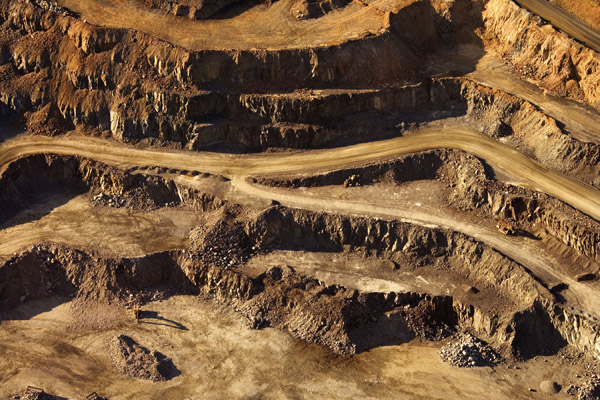KERAS RESOURCES, a UK-based mining company principally engaged in the gold mining and exploration, has announced that it now owns 100% of Falcon Isle Resources LLC and Falcon Isle Holdings LLC, having acquired the outstanding 49% minority interests of Falcon Isle from the Helda Living Trust (HLT). Falcon Isle owns the high-grade Diamond Creek organic phosphate lease and mine, and the Spanish Fork processing facility in Utah, US. Keras has now assumed full management of Falcon Isle and production has recommenced operations at the processing facility. Keras had been looking to resolve the funding shortfall at Falcon Isle and engaged local US legal representatives to enforce its rights of the terms of the transaction agreed in June 2020, under which Keras secured a 51% stake in Falcon Isle effective 29 December 2020. Further to these discussions, agreement has been reached whereby Keras has purchased the outstanding 49% equity interest in Falcon Isle for a total consideration of US$3.2 million including loans repaid to the vendor of Falcon Isle of US$1 816 527. To preserve cashflow for developing the project, this will be paid in four annual installments of US$800 000 commencing on 1 July 2022 with the final payment on 1 July 2025. Concluding this agreement has ensured that the company avoids a lengthy and costly litigation process in the US and allows Falcon Isle to recommence operations to meet demand in the key spring season.
MINBOS RESOURCES, an Australia-based exploration and development company that is focused on the development of its Cabinda Phosphate Project, has decided to include new plant configurations to capture current market opportunities in the definitive feasibility study (DFS) for its project in Angola. This decision comes due to strong potential local demand for raw phosphate rock and with fertilizer prices having broken new records as global supplies are hit by multiple factors including the war in Ukraine, Chinese fertilizer export bans and supply chain inflation. Prices for raw materials that make up processed fertilizers — ammonia, potash, phosphates, sulfur — have risen 30% since the start of the year. Globally, phosphate markets are surging, propelled by buyer concerns that major disruption to global ammonia supplies could, in the near-term, lead to DAP and MAP production cuts. More critically, supply constraints are accentuated in smaller markets with consumers and importers in Angola unable to source MAP and DAP regardless of price. MAP and PR are the key ingredients in Cabinda phosphate granules. While Cabinda’s phosphate rock is still available at cost, at current prices, MAP would comprise approximately 90% of the cost of raw material input costs for the granules, having a large and outsized impact on product pricing. Minbos and the International Fertilizer Development Center (IFDC) are now planning a role for the company’s beneficiated PR to be used in the Angolan Farm and Fertilizer Productivity Program (AFFPP).
INDIAN GOVERNMENT on Tuesday (19 April) asserted that there will not be any fertilizer shortage in the upcoming kharif sowing season and said it will soon announce the subsidy rate for non-urea soil nutrients for the current fiscal. Addressing a conference on preparedness for the kharif sowing operation that commences with the onset of the southwest monsoon from June, Fertilizer Secretary RK Chaturvedi assured that the government has “made both short and long term arrangements with global suppliers for import of fertilizers.” According to the secretary, the country is estimated to import about 104.72 lakh tonne of fertilizers — which includes 40 lakh tonne of urea, 29 lakh tonne of DAP, 23.18 lakh tonne of MoP and 13.22 lakh tonne of SSP — to meet the demand during the upcoming kharif season. A long-term agreement has been signed with Oman India Fertilizer Company SAOC (OMIFCO) for the import of 10 lakh tonne of urea every year for three years. A monthly supply of 90,000 tonne has started from February, he said. Further, the supply arrangement has also been finalized between Indian PSUs and Russian companies for 2.5 lakh tonne of DAP and NPK every year for three years. Under the short term agreement with Saudi Arabia, the secretary said a total of 25 lakh tonne of DAP/NPK has been secured by Indian PSUs and companies for the 2022-2023 fiscal. The companies, such as PPI, Zuari and Chambal Fertilizers, have a long-term pact with Moroccan phosphates giant OCP for the import of DAP and NPK as well as raw materials, Chaturvedi noted. OCP has agreed to supply a sufficient quantity of DAP and raw materials. It has offered to supply 16.6 lakh tonne of DAP this year to Indian companies at prevailing international prices, he said. Since Morocco procures Ammonia from Russia for DAP manufacturing, the supply of the fertilizer has been affected in the wake of the current geopolitical situation, he added.




